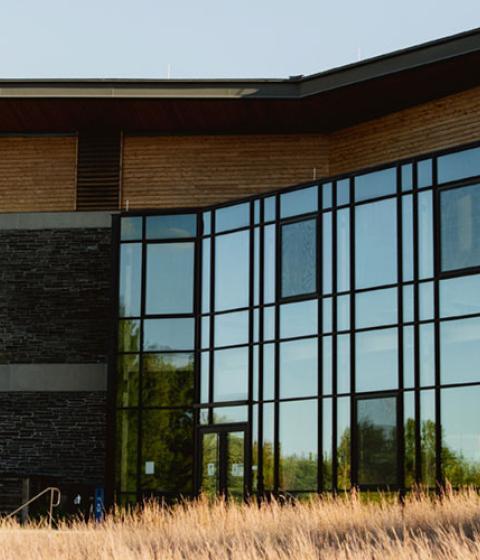
Environments and Change
How should we act on our responsibilities in the face of changing climate?
At Hampshire, you'll learn multiple ways to identify a challenge, ask the right questions, mobilize resources, and incorporate diverse points of view as you creatively propose solutions. You'll move across, between, and outside of academic areas, combining fields to create your own original course of study while collaborating with professors and peers.
Hampshire College was founded in 1965 to radically reimagine liberal arts education. Today, we’re more unconventional than ever, and we’re organized in a way that’s different from any other college in the world. Our curriculum is organized around urgent questions. We combine academic disciplines and work together to address the pressing issues facing society today.
The world has big problems. Traditional models of departments and schools can’t address these challenges effectively. So we’ve organized ourselves around Learning Collaboratives. Through these groups of academic resources, students and professors come together to address the pressing real world concerns facing society today.
And we will not remain static. As global challenges shift, so do the topics of our Collaboratives. We evolve and change to reflect the world around us.
Take part in a curriculum that reflects the world around us—ever-changing, fluid, and never contained within a single discipline. Focus on working with your peers and faculty members to directly tackle 21st-century challenges and enact real change in the world.

How should we act on our responsibilities in the face of changing climate?
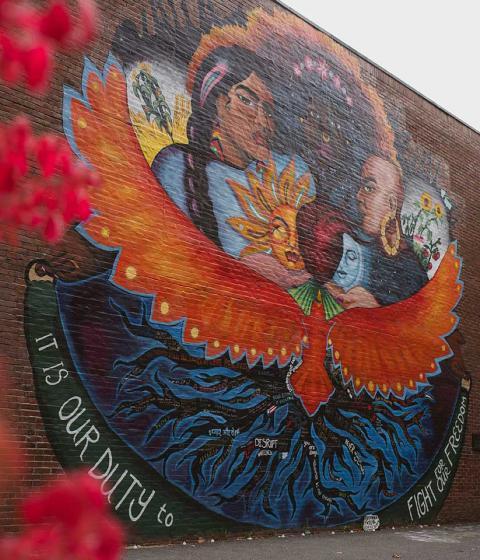
How do we disrupt and dismantle white supremacy?

How do we decide what constitutes truth in a "post-truth" era?
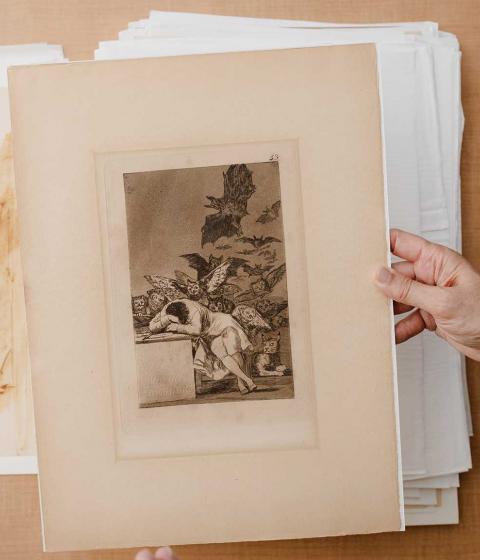
How can art and creative practices engage trauma?
You will advance through a three-part divisional structure rather than traditional school years. Each division requires a portfolio review, including narrative feedback from each course, final papers and projects, community-engaged learning, and a retrospective, capped off by a yearlong Div III project of your own design.
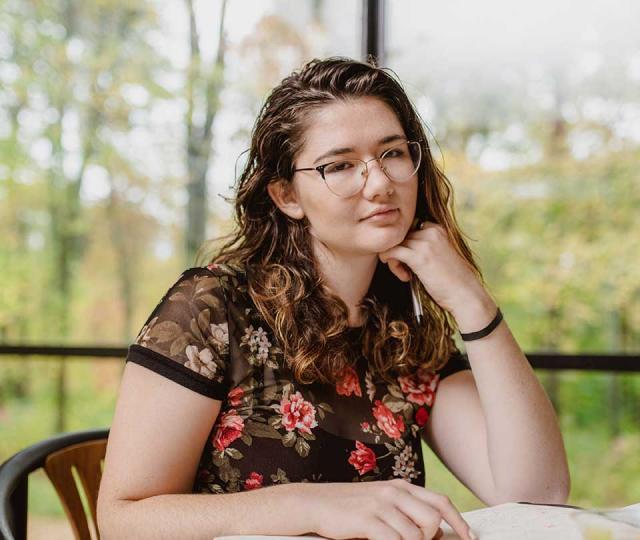
The first year emphasizes learning across a wide range of critical, scientific, and creative approaches through our interdisciplinary curriculum, gaining skills for learning in community with others, and engaging in project-based learning in supported contexts.
You'll be mentored by an advisor, and supported through our advising networks of students, staff, and faculty.
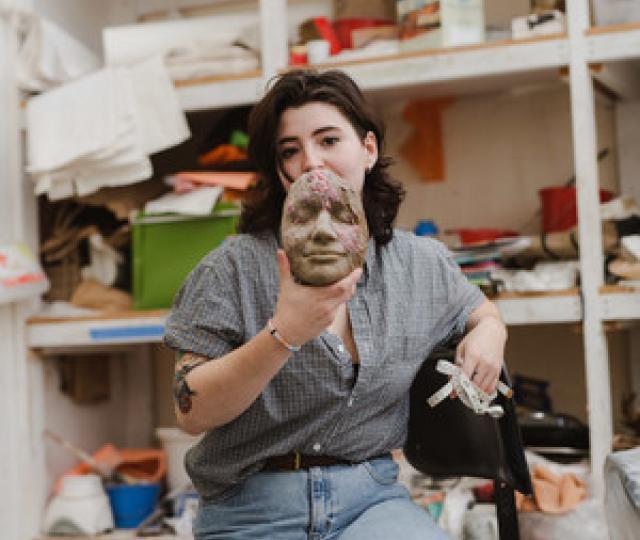
The second and third years are all about deep inquiry into your own interests. Guided by a team of advisors, you will design your own academic path, strengthen your connections in communities of learners, and grow toward independent project-based learning.
Your advisors help you choose classes, internships, study abroad, and other opportunities to pursue your passions.

The fourth year is your chance to push your learning further, take risks, and take your original idea from conception to completion through a thesis-like project. Do research no one has ever done. Build a robot that teaches itself to climb. Write a textbook that revolutionizes how middle-school history is taught. Create a collection of poems or stories. Interview clinicians about how to improve mental health treatment. Produce a feature documentary. Design and distribute new software or apps. Design and curate an interactive art exhibit.
You will not come to Hampshire to pursue a major. A student’s job when they get here isn’t to declare a major, it’s to discover their mission.
You'll choose the faculty advisors to work with as you create an individualized academic curriculum addressing the big question, challenge, or issue you're most interested in. Together, you'll develop your goals and craft a plan, then build a portfolio of work.
Instead of grades, you'll receive narrative evaluations from faculty. In the process, you'll acquire the ability to seek out people to learn with and from, figure out how to access resources and solve problems relevant to your interests, and work flexibly and confidently to meet unexpected challenges and opportunities. All skills that will help you take on the real world
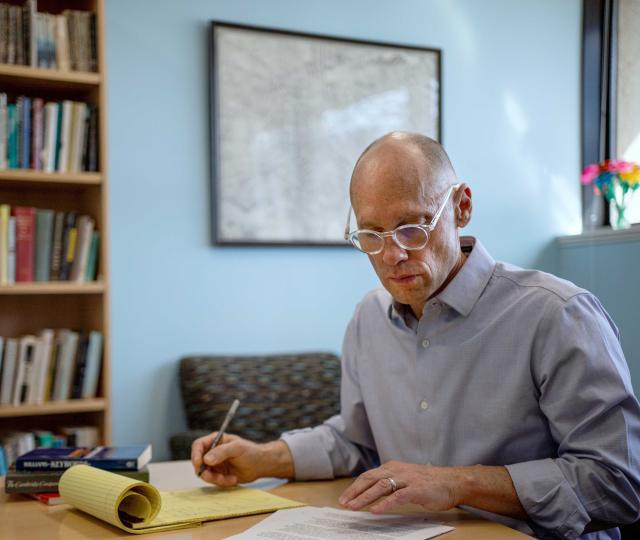
These evaluations parallel professional performance reviews, helping students identify their areas of growth potential along with their areas of strength.

We don’t box you in with traditional majors or departments. Build a program that aligns with your interests, passions, questions, and goals.
The study of theory is combined with direct "real-world" experience like an internship, project with community organizations or peers, field research involving community agencies, and more.